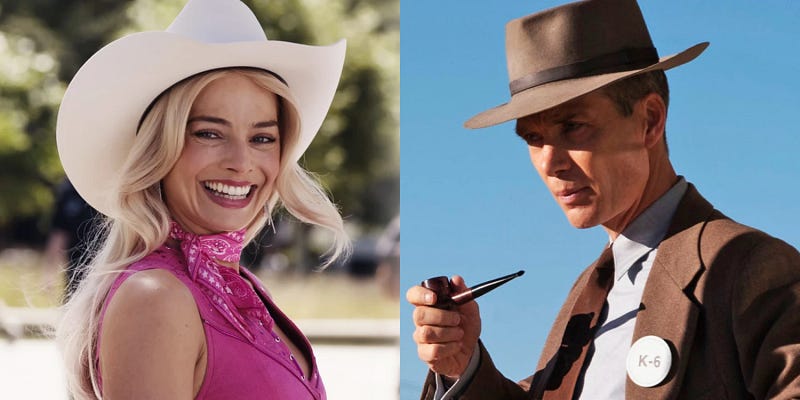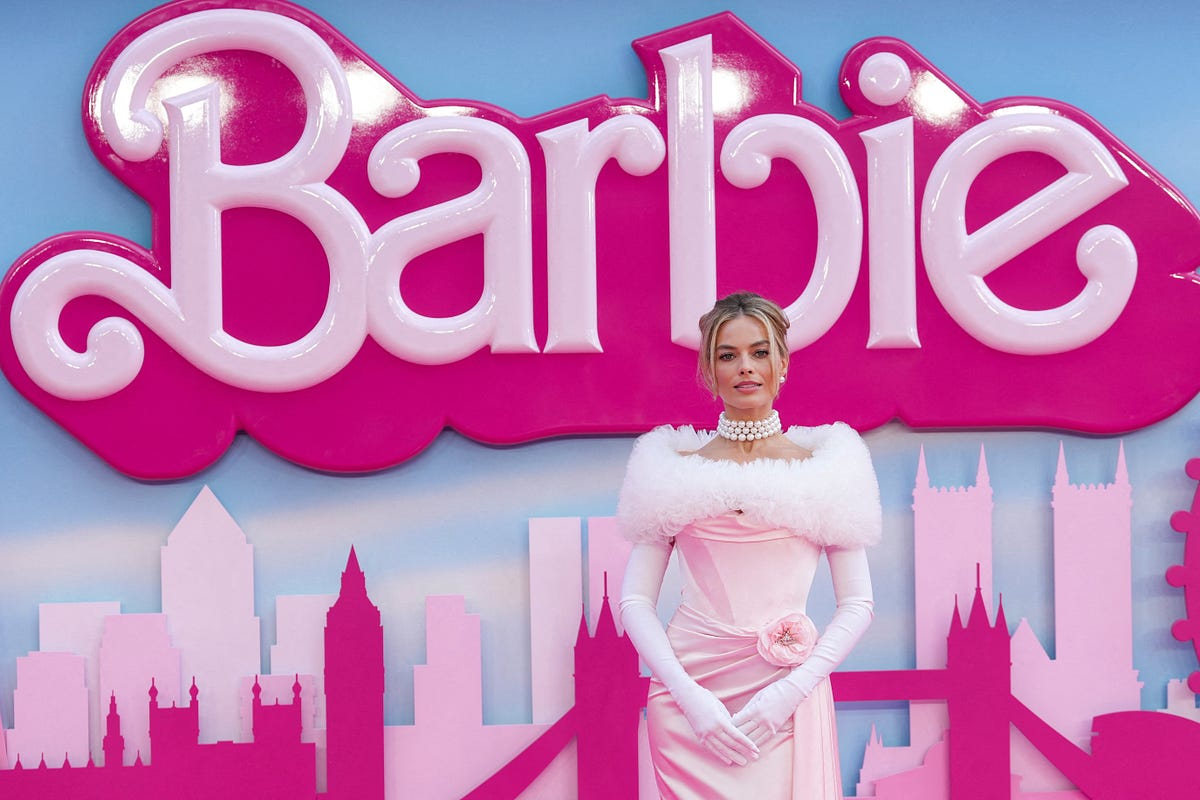It is perhaps one of the most notable phenomena from 2023: The Barbie movie. There is not a person alive who has not heard of the blockbuster that dominated both social and mainstream media.
Being the highest grossing movie of 2023 with 1.44 billion dollars on worldwide box offices, and 9 Golden Globe nominations, Barbie will no doubt go down as being one of the most influential movies of the decade. But why would so many people watch a movie about a toy? It a question asked by many and answered by and through its lead actress and producer. Not enough people are aware that the success of the Barbie movie should, to a good extent, be accredited to the great efforts of Margot Robbie, who spearheaded the campaign of creating a live-version adaption of the iconic doll for the big screen.
How Robbie became Barbie
Born in Queensland Australia, Margot Robbie started her acting career in 2008 in the Australian soap opera phenomenon Neighbours. After moving to America, she had her major breakthrough in 2013 when she starred in Martin Scorsese’s The Wolf of Wall Street. She has since starred in a myriad of critically acclaimed movies. Together with her partner Tom Ackerley, Robbie formed her own production company LuckyChap Entertainment. With the goal of producing more female-driven projects, LuckyChap produced the 2017 movie I, Tonya, a biopic on figure skater Tonya Harding, who is portrayed by Margot Robbie herself.
The initial success, of I, Tonya gave the production company some much deserved credibility, which allowed them to produce more and more films, out of which the Academy Award winning Promising Young Woman is perhaps the most noteworthy. That is until last year. In cooperation with Warner Brothers and the Mattel company, Margot Robbie’s LuckyChap was able to start production on the Barbie movie in late 2018 when Sony did not deliver and had its option expired. Ideas for a live-action Barbie movie had been in the works since 2014, under different companies, different writing staffs, and different noteworthy people associated with the project. Margot Robbie immediately spearheaded the campaign to finally make a live-action Barbie movie happen. This not only included a campaign within Warner Bros. to get a green light, but also discussions with the Mattel company, who own the brand and are responsible for Barbie. Robbie approached director Greta Gerwig, best known for her work on the film Little Women, to write the screenplay, and later direct the movie. Gerwig consented on the condition that she could bring in her partner Noah Baumbach to co-write the screenplay. Gerwig was also given full creative freedom in writing the script. As such, for Margot Robbie it was also quite the surprise of what the movie would ultimately be about. Not to mention that Gerwig was also given freedom in terms of casting, meaning that Robbie was not assured of getting a role. In a conversation/ interview for Variety with Cillian Murphy, the lead actor in Christopher Nolan’s Oppenheimer, Robbie admitted that she was completely okay with not getting a part before receiving the script, but when it was done and she read the script, Robbie said “Oh I have to play this”.
In Robbie’s capacity as producer, she was tasked with the unique challenge of educating a toy company on the arts of filmmaking. She admits that after the first read of the script she was convinced the movie was going to be a hard sell. In that same conversation with Murphy, she calls back to reading the script with her partner Tom. When she finished reading she said: “They’re (Mattel) never gonna let us make this”. For Mattel, who never made a movie in this capacity, it was a new experience. Robbie describes the conversations with Mattel as “making people comfortable with being uncomfortable”. However, Robbie makes it clear that Mattel were overall, great sports in the process, hearing out explanations for lines that they might not be so happy about in the first place, and overall having a good sense of humour, especially given the fact that the Mattel company is a character in the film.
“Barbenheimer”
The commercial success of the Barbie movie has been credited, to an extent, to the social media hype surrounding the movie. A hype that was inflated thanks to the simultaneous release of Oppenheimer, a movie on the Manhattan Project, directed by Christopher Nolan. Being the polar opposite of the Barbie movie, Nolan gives his artistic interpretation of the life of J. Robert Oppenheimer, played by Cillian Murphy, and supported by a cast made up of some of the best the acting industry has to offer, including Robert Downey Jr., Matt Damon, and Emily Blunt. The hilarious contrast between the Barbie movie and Oppenheimer, took social media platforms by storm, and transcended to mainstream media, which helped in the increased attention for the films. Cillian Murphy brings some nuance to this hype, stating that the movies are also just really good.

Like Oppenheimer, the Barbie movie boasts an impressive cast, with favourites like Ryan Gosling, Will Ferrell, and of course Margot Robbie. The Barbie movie combines a critique of gender-ruled societies with unexpectedly intelligent humour, all while being set in an oversaturated world where exaggerated motives carry real and uncomfortable underlying tones. The movie manages to promote feminist ideals while also giving space to the male experience, albeit in an understandably lesser, and more light-hearted manner. Margot Robbie, who plays stereotypical Barbie, gives an intelligent ‘fish out of water’ performance. She inserts depth, presents flaws, and shows progress in her portrayal of a literal doll. The movie manages to subvert expectations. Not only within its storytelling and message, but also in the fact that (perhaps over-) hyped movies such as Barbie, still carry a level of quality. A level of quality that, in the case of the Barbie movie is deserving of the whooping 9 Golden Globe nominations. Which really should be 10, if it was not for the fact that the Golden Globes have no category for best movie producer.

